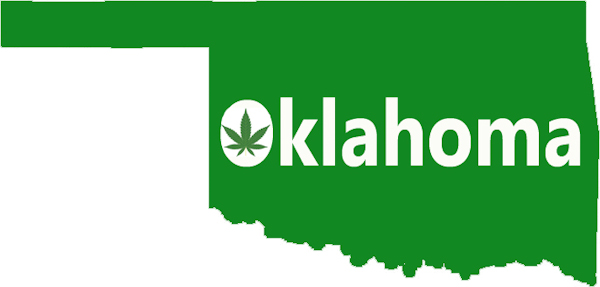Photo by: Henoc Kivuye
State Senator Constance Johnson is introducing Senate Bill 2116 – a bill that would allow Oklahoma to regulate and tax marijuana.
Johnson previously tried to pass marijuana legislation, but it has yet to be accomplished.
President Obama told The New Yorker, “I don’t think [marijuana] is more dangerous than alcohol,” and Johnson agrees; she doesn’t think marijuana is harmful. She was quoted by News Channel 4 as saying that alcohol is much more dangerous than marijuana.
According to Laura Shodall, a sophomore at Oklahoma Christian University, both marijuana and alcohol should be fine in moderation.
“I’m from Southern California, and I’m around marijuana a lot … it’s just a part of the culture there,” Shodall said. “I honestly haven’t encountered any situation where marijuana was involved with bad decision-making. So talking about alcohol and marijuana, I do believe both in moderation are OK. It’s what you do with it that makes it destructive.”
Senior Chas Carter took a similar stance as Shodall.
“If we’re going to allow things like alcohol, especially tobacco, something that we know can kill you, then there’s no reason to make something illegal that doesn’t have those effects,” Carter said.
Some have discussed the possibility of marijuana legalization as being confusing for kids, considering the mantra, “Just say no,” floating around most schools. Shodall said that she doesn’t put marijuana in the same grouping as hard drugs.
“Using pills, or things like cocaine and heroine, I think are in their own grouping,” Shodall said. “I do understand programs like [D.A.R.E]; it helps kids not to get involved with drugs, but I still don’t put marijuana in that same group.”
Carter asserted legalizing marijuana wouldn’t encourage kids to try it themselves.
“We still have programs to get kids to not smoke tobacco, and it’s still legal,” Carter said. “I think that if marijuana does become legalized there needs to be programs put into place that discourage usage, or if they are going to use, to be responsible.”
Some have said that even if marijuana isn’t regulated for recreational use, it should still be available for medical use.
“[Medical marijuana] has done a lot of good for medical patients, but as for recreational use, I’m also not against it,” Shodall said.
Shodall noted there should be an age limit on the drug, however.
“Personally, I think the drinking age should be 18, so if they are going to distribute marijuana then I’m pretty sure that it should be at least 18,” Shodall said.
Carter set a limit with the drinking age in Oklahoma.
“I don’t know what physiological affects it has at different ages … research could be done into that,” Carter said. “For me, I just think that there are more negatives to prohibiting than legalizing.”
According to Shodall, the possibility of legalization wouldn’t have a huge affect on Oklahoma.
“I do come from a place where it’s acceptable, and people do use it, and I mean life goes on,” Shodall said. “I think a lot of people are just really uninformed about marijuana.”
Marijuana has been called a gateway drug, accused as leading people to hard drugs like heroin and cocaine.
“That usually doesn’t happen,” Shodall said. “And if it does, they already had intent to use those other drugs.”
Shodall asserts that the possibility of marijuana legalization wouldn’t affect the spiritual community at Oklahoma Christian.
“All of us here are adults, and are out of high school, all kind of formulating our own values,” Shodall said. “If it were legalized, I don’t think it would cripple or hurt the spiritual community.”
With all the talk about the possibility of marijuana being legalized, there are some who think no matter how hard it is pushed, it will never happen for Oklahoma.
“There is not enough supporters behind it; we’re in the Bible Belt,” Shodall said. “I don’t think there’s even a chance, especially with Oklahoma voters.”
Carter echoed Shodall’s estimation, noting marijuana has a slim-to-none chance of being legalized in Oklahoma.
Another stance some Oklahomans take is primarily motivated by economics, justifying marijuana’s legalization by the revenue it would bring to the state through regulations and fees.
“From an economic standpoint, I do believe if you could put an age restriction, regulate it, tax it, it can produce a lot of revenue,” Shodall said. “At the same time, it just makes the question of if you want something like marijuana readily available to people.”
Carter agreed.
“If it works like it’s working in Colorado, that could be a good way to balance the state budget,” Carter said.
According to Johnson’s bill, people 21 and older could legally purchase, possess and consume up to one ounce of marijuana.
Johnson wants to spread the word about marijuana and her bill through a marijuana lobby day at the Oklahoma State Capitol on Feb. 12.
Senator Patrick Anderson, chair of the appropriations subcommittee on select agencies, has agreed to hold a hearing to raise awareness about the science of marijuana.
The hearing will take place at 3:30 p.m. in room 419C of the Oklahoma Capitol building, with an additional session afterwards.
“We also hope to do an informational session on the legislative process and the best practices for connecting with elected officials,” Johnson said.














Be First to Comment